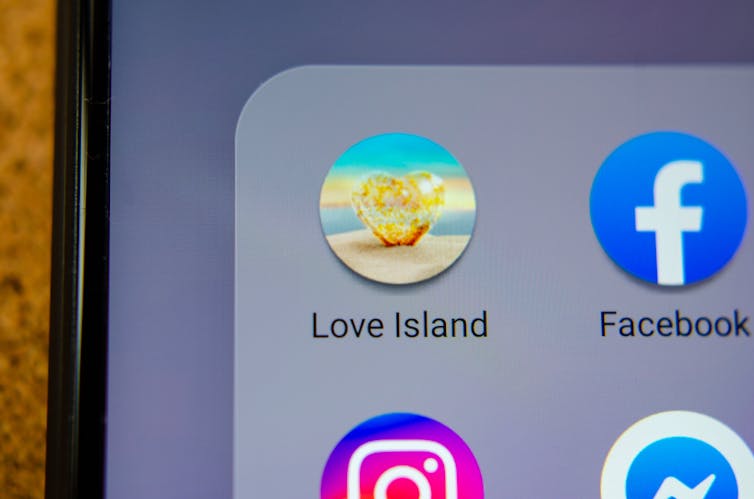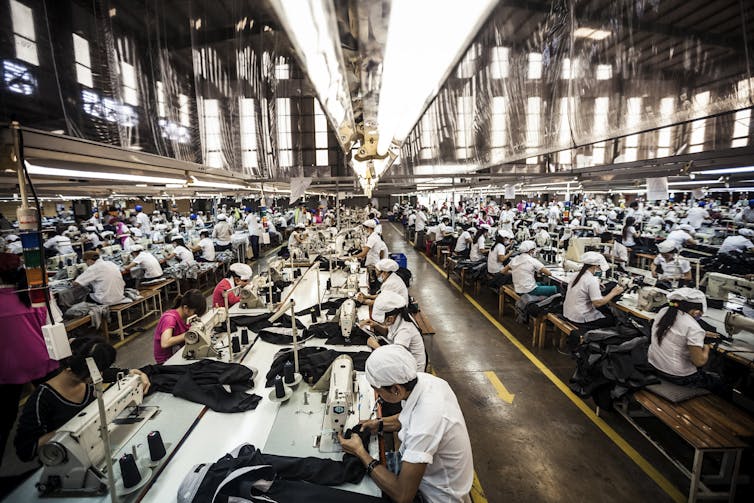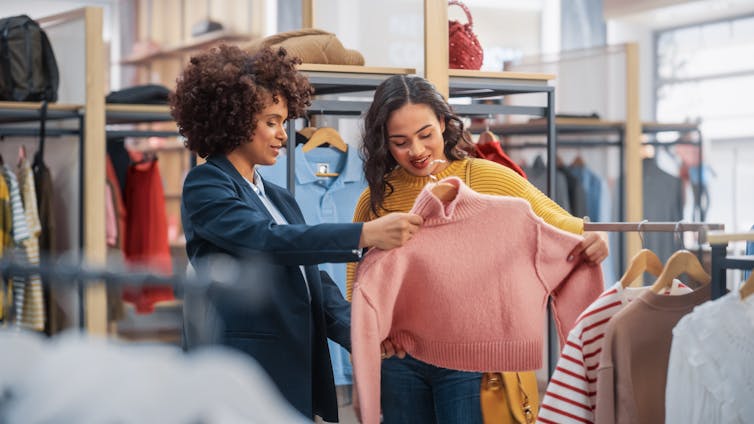Table of Contents
A not too long ago introduced partnership between ITV actuality show Love Island and secondhand e-commerce large eBay sends a robust certain sign about prioritising sustainability over speedy type.
After receiving a robust backlash towards Love Island’s promotion of speedy type manufacturers equivalent to I Noticed It First and Missguided, the show’s govt manufacturer, Mike Spencer, has introduced it’ll be running with eBay in 2022 to dress individuals in its present collection with “preloved” clothes.
Love Island boasts massive target audience rankings amongst younger other folks. Some 43% of Love Island audience are beneath 30, and 16-34 year-olds made up one-third of audience of the collection premiere on June 6. So the show has the facility to steer younger other folks’s buying groceries conduct, in large part during the legitimate Love Island app the place audience can “store the show” to seek out attractiveness and type pieces promoted via contestants. Manufacturers hope that via linking audience to eBay – the place they’ll discover a curated number of “Islander-inspired” outfits – they’ll be inspired to shop for secondhand as an alternative.

Shutterstock
This can be a small step in the precise path in opposition to making sustainable existence extra available and amusing. However extra must be achieved to be able to shift the pervasive affiliation between pop culture and consumerism.
Attracting sustainable shoppers
Love Island and its influential contestants, together with PrettyLittleThing ingenious director Molly-Mae Hague, are recognized to pressure type traits. In earlier years, on-line type gross sales have grown via greater than one-tenth all the way through the eight-week summer season length when the show airs. Early insights counsel this yr might be no other, with eBay searches for attire very similar to the ones noticed on contestants up via up to 200%.
Sustainability advocates, together with former Love Island contestant, mannequin and type influencer Brett Staniland, have argued that the show endorses a throwaway perspective to type. For plenty of, this used to be epitomised via the show’s promotion of Missguided’s £1 bikini, priced low sufficient to be thought to be disposable. By contrast, the show’s resolution to spouse with eBay must draw in a brand new target audience for the reuse tradition message in comparison to the folk sustainability messaging typically objectives.
Learn extra:
Love Island ditches speedy type: how actuality celebrities affect younger consumers’ conduct
Sustainable intake comes to recognising the environmental have an effect on of our existence and resolving to devour much less. Shifting clear of disposability and in opposition to reuse throughout all sectors of society – no longer simply type – depends upon cooperation between governments, companies and voters.
However motivating other folks to take environmental considerations under consideration in relation to buying groceries is difficult, no longer least as a result of we’re bombarded with photographs that equate good fortune or “the great existence” with excessive ranges of subject material intake. Advertisers paintings laborious to persuade us that we’d like the most recent automobile, system or type merchandise to are living a satisfying existence.

Flickr/ILO Asia-Pacific, CC BY-NC
Some other problem is to make sustainable existence interesting to the mainstream, moderately than simply to prosperous middle-class shoppers, who’re already maximum receptive to sustainable intake campaigns.
Learn extra:
5 tactics to shift shoppers in opposition to sustainable behaviour
Dwelling sustainably is steadily taken to imply giving up the issues that we adore (together with vehicles, meat or vacations) and permitting our person freedoms to be curtailed for the commonplace excellent. And opinions of consumerism have connected excellent citizenship with restrained spending and denial of subject material pleasures.
Collaborations like that between Love Island and eBay – along side different fashionable campaigns equivalent to wearme30times, which inspires us to simply purchase pieces of clothes if we’ll put on them a minimum of 30 occasions – can play a large function in moving those concepts. Importantly, they’re steadily a success as a result of they paintings with client tradition in recognising that we purchase garments to be in contact our identities, show our social standing and care for social relationships (in addition to for amusing).

Shutterstock
Additionally they faucet into our present anxieties about speedy type via introducing different choices. Thinker Kate Soper’s thought of “selection hedonism” recognises how, when confronted with the side effects of intake, it may be deeply pleasant to scale back your have an effect on to profit the sector round you. That sense of pleasure is helping problem enduring social stigma surrounding secondhand garments, in addition to advertise sustainability amongst the ones not able to have enough money high-end eco-friendly type.
Taking it additional
However the have an effect on of this partnership must no longer be overrated. Those that watch the show – however most likely no longer the scoop – could be forgiven for lacking it altogether, given there’s no longer but been any point out of secondhand clothes on Love Island itself. If truth be told, what’s much more likely to face out is the enchantment of a sumptuous overseas vacation and the a couple of attractiveness and type pieces pictured in dressing room scenes.
And decreasing intake is certainly no longer the message underpinning the show’s financial system: with giant manufacturers promoting all the way through breaks, in-app buying enabled throughout a couple of social media platforms and contestants more likely to grow to be emblem influencers as soon as the show ends.
Learn extra:
Our dependancy to stuff: How Walmart allows us to damage the planet
But when it used to be to lead via instance, Love Island may possibly ditch conspicuous intake altogether. Since many unsustainable behaviours are pushed via comfort, convenience and social norms, the show may possibly advertise collaborative intake as an alternative.
That would imply workforce cooking, which cuts meals waste and equipment power intake, or a “type library” encouraging greater use of every clothes merchandise. There’d definitely be leisure price in observing contestants switch garments or harvest native produce: and even slog during the British dust in a glamping-style state of affairs. Love Island already presentations the great and the dangerous of relationship – it’s time for it to get actual about sustainability too.
https://theconversation.com/love-island-and-ebay-how-the-reality-show-could-model-a-radically-sustainable-future-for-its-young-viewers-185242




